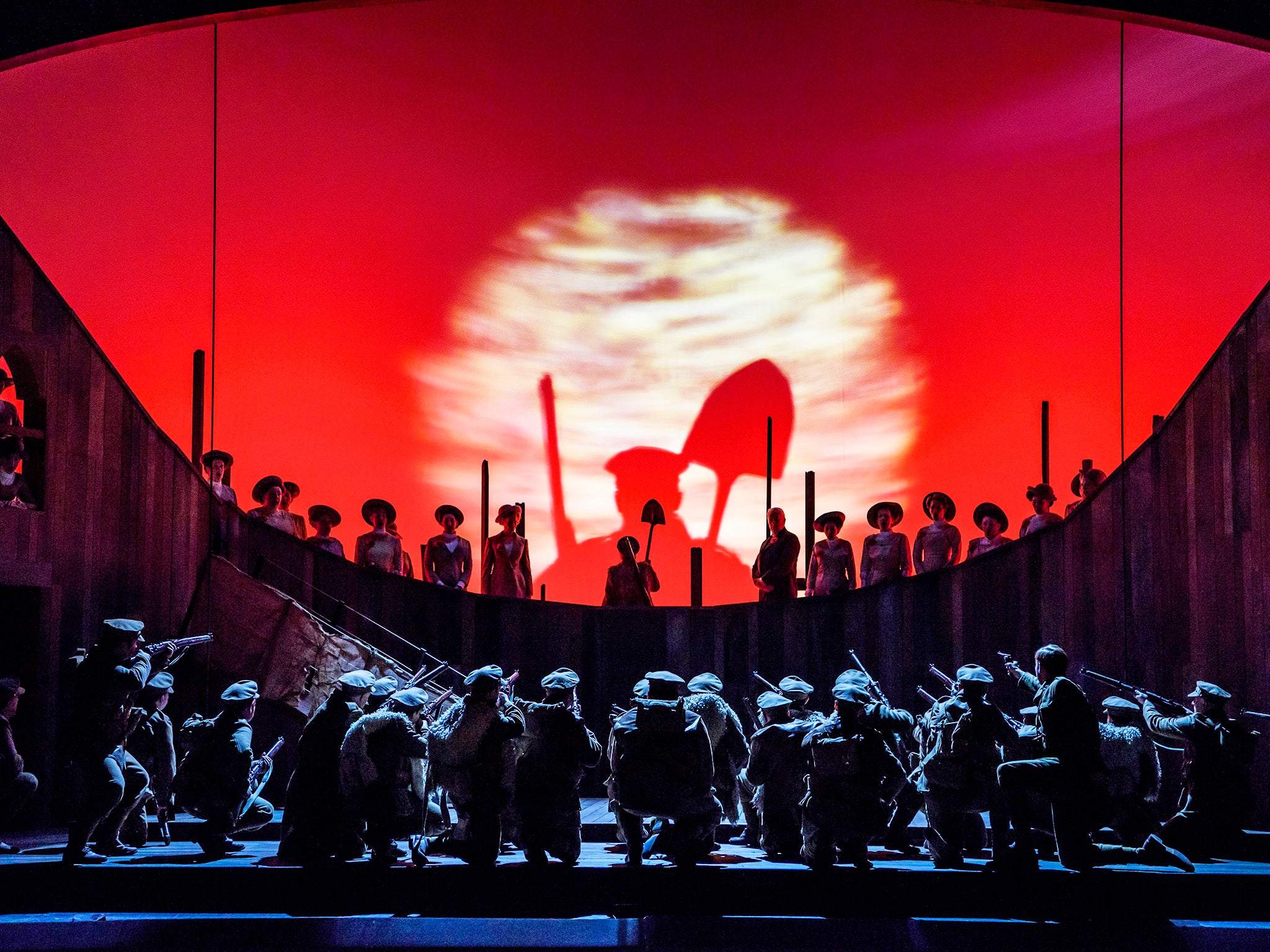Opera review: Ian Bell’s ‘In Parenthesis’, Wales Millennium Centre, Cardiff: ‘a powerful act of remembrance’

Your support helps us to tell the story
From reproductive rights to climate change to Big Tech, The Independent is on the ground when the story is developing. Whether it's investigating the financials of Elon Musk's pro-Trump PAC or producing our latest documentary, 'The A Word', which shines a light on the American women fighting for reproductive rights, we know how important it is to parse out the facts from the messaging.
At such a critical moment in US history, we need reporters on the ground. Your donation allows us to keep sending journalists to speak to both sides of the story.
The Independent is trusted by Americans across the entire political spectrum. And unlike many other quality news outlets, we choose not to lock Americans out of our reporting and analysis with paywalls. We believe quality journalism should be available to everyone, paid for by those who can afford it.
Your support makes all the difference.Years following the 1916 carnage at Mametz Wood, artist-poet David Jones wrote his First World War epic poem, In Parenthesis. Blending reportage, eulogy and autobiography with historical collective dream, the combination proves eloquent in composer Iain Bell’s new operatic setting, commissioned by the Welsh National Opera for its 70th anniversary season to commemorate the centenary of the Battle of the Somme.
Under conductor Carlo Rizzi, Bell’s richly multilayered score supports the deft interweaving of realism and mythic fantasy by co-librettists Emma Jenkins and David Antrobus. Other-worldly symbolism is maximised in director David Pountney’s deceptively simple period setting, depicting the terror, boredom and banter of life for riflemen in the trenches.
Andrew Bidlack and Donald Maxwell excelled as Ball and Dai, with Graham Clark’s Marne Sergeant a grizzled highlight. Peter Coleman-Wright and Alexandra Deshorties (Bards of Britannia, Germania and more) steered the narrative with aplomb. But each singer deserved plaudits in a strong ensemble piece, including the impassioned women’s Chorus of Remembrance/Dryads.
This is opera created for and with the community; not just in Wales, though its honouring of the Royal Welch Fusiliers exudes grace. Retaining Jones’s poetic sensibility, it is a powerful act of remembrance for all “the many men so beautiful” who fought at Mametz.
Join our commenting forum
Join thought-provoking conversations, follow other Independent readers and see their replies
Comments